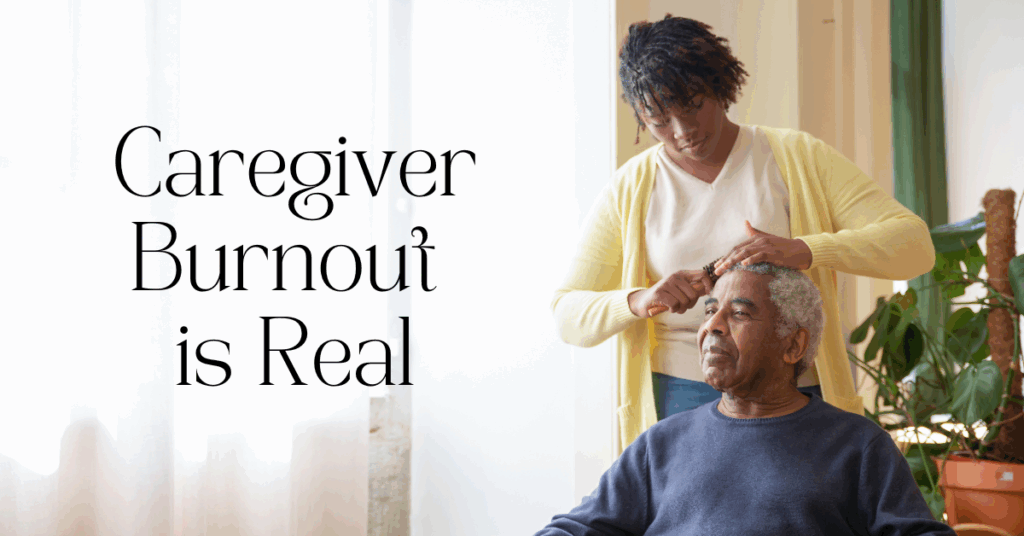Caregiving is a profound act of love—but it can also be emotionally exhausting. Whether you’re caring for an aging parent, a child with special needs, or a partner facing chronic illness, the emotional and physical toll adds up. Many caregivers carry on without pausing, without asking for help, and without recognizing the quiet depletion happening inside.
This is what we call caregiver burnout—a state of emotional, mental, and often physical exhaustion caused by prolonged stress. It’s real, and it deserves attention.
What Is Caregiver Burnout?
Caregiver burnout doesn’t happen overnight. It builds slowly, often unnoticed, until it becomes overwhelming. Common symptoms include:
- Chronic fatigue
- Irritability or mood swings
- Trouble sleeping
- Feelings of hopelessness or helplessness
- Physical symptoms like headaches or stomach issues
- Withdrawal from friends and social activities
If any of this sounds familiar, you’re not alone. Many caregivers ignore their own needs for far too long. Learning how to spot early signs of mental health symptoms can help you take proactive steps.
The Hidden Emotional Load
Caregiving is more than managing medications and appointments. It’s holding space for someone else’s emotions while often suppressing your own. Many women, especially, take on caregiving roles without being asked—feeling like it’s their duty, identity, and responsibility.
This invisible weight adds up. As explored in our post on The Emotional Load Women Carry, these unseen responsibilities often lead to chronic stress and feelings of inadequacy.
Reclaiming Your Well-Being
Burnout is not a failure—it’s a signal. Your body and spirit are telling you they need care, too. Here are ways to begin reclaiming your well-being:
1. Acknowledge your needs.
You cannot pour from an empty cup. Make space to assess how you’re feeling, physically and emotionally.
2. Build your support team.
This might include family members, a therapist, or a caregiver support group. Finding the right therapist for you can offer clarity and guidance tailored to your experience.
3. Schedule rest and joy.
Not just sleep—true rest. Moments where you can laugh, create, reflect, or do nothing. Resilience grows in these quiet pauses. Emotional resilience is built one small, intentional choice at a time.
4. Set boundaries.
Say no when you need to. Ask for help without guilt. Boundaries are not barriers—they’re lifelines.
5. Lean on your faith (if you choose).
For some, spiritual practices offer renewal and hope. If faith is part of your healing, you may find encouragement through therapy that respects and incorporates your beliefs.
You Are Worth Care, Too
Caregiving is sacred work but should not come at the cost of your well-being. If you’re struggling, take it as a sign—not of weakness, but of need. You matter. Your health matters. And support is available.
At Refinery Counseling, we walk alongside caregivers from all walks of life—providing space to rest, to process, and to heal. Your story is important, and you deserve care as deeply as the care you give.

